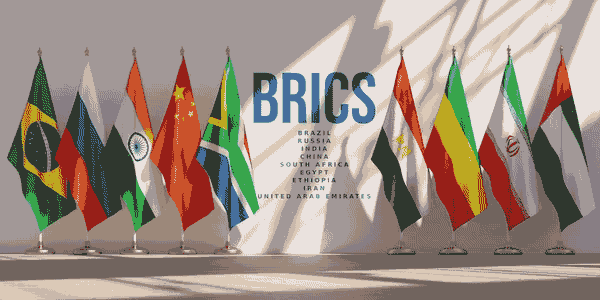Navigating Challenges Amid Diplomatic Shifts and Economic Threats
The Global South—comprising nations in Africa, Latin America, and Southeast Asia—is redefining its role in the global order, leveraging collective economic and political strength to demand reforms in global institutions. Regional alliances such as BRICS, the African Union (AU), and the Community of Latin American and Caribbean States (CELAC) are at the forefront of this movement. However, these ambitions are not without obstacles, including threats from traditional powers to maintain the status quo.
One such challenge came when Donald Trump, during his presidency, issued a stark warning: a 100% tax on nations that abandon the dollar system. This controversial statement reflected U.S. concerns over the growing trend of de-dollarization—a movement gaining momentum in the Global South as countries seek alternatives to dollar-dominated trade.
The Context of De-Dollarization
The push to reduce reliance on the U.S. dollar stems from:
- Economic Independence: Countries in the Global South aim to insulate themselves from the effects of U.S. monetary policies, such as rising interest rates.
- Trade Alternatives: Regional currencies and bilateral trade agreements are increasingly being used, particularly among BRICS nations, to bypass the dollar in transactions.
- Sanctions and Sovereignty: Nations under U.S. sanctions are exploring ways to trade without depending on dollar-based systems.
Trump’s Threat: A Deterrent or a Bluff?
While a 100% tax on nations leaving the dollar system sounds formidable, its feasibility and effectiveness as a deterrent are questionable:
- Economic Consequences for the U.S.:
- Such a tax would likely disrupt global trade, alienating allies and trade partners.
- U.S. companies relying on exports or imports from affected countries could suffer significant losses, leading to domestic economic backlash.
- Impact on the Global South:
- Nations targeted by such a tax could experience immediate economic strain, particularly those heavily reliant on U.S. trade.
- However, it might accelerate the shift towards alternative trade systems and alliances as countries work to mitigate their exposure to the dollar.
- Global Reaction:
- Imposing such a policy could isolate the U.S. diplomatically, fostering resentment among allies and neutral states.
- Other major economies, like China and the EU, could step in to fill the vacuum, offering support to nations penalized by the U.S.
Diplomatic Implications for the Global South
In response to such threats, the Global South has demonstrated resilience through diplomatic innovation:
- Strengthening Regional Alliances: BRICS nations have proposed a common currency to facilitate trade, reducing dependency on the dollar.
- Leveraging Multilateral Forums: Organizations like the AU and CELAC have united countries to negotiate collectively, reducing individual vulnerabilities.
- Diversifying Trade Partners: By expanding trade ties with China, Russia, and other emerging powers, the Global South is creating a buffer against economic coercion.
Will It Deter De-Dollarization?
While Trump’s threat may temporarily slow some nations’ efforts to move away from the dollar, it is unlikely to halt the broader trend:
- The systemic drivers of de-dollarization—economic independence, resilience against sanctions, and diversified trade—are rooted in long-term strategic goals.
- The threat may even galvanize nations to accelerate their efforts, seeing it as evidence of the risks of over-reliance on the dollar.
Conclusion
The Global South’s rise is reshaping global power dynamics, but it comes with its share of challenges, including economic and diplomatic pushback from traditional powers like the U.S. While threats such as Trump’s proposed 100% tax may complicate the path, they are unlikely to derail the broader momentum toward de-dollarization and greater self-determination.
Through diplomacy, regional cooperation, and strategic resilience, the Global South is charting a new course—one where economic policies and global institutions reflect a more balanced and inclusive vision of the world. The journey may be fraught with resistance, but the destination is clear: a multipolar world where no single currency or power dictates the rules of engagement.


